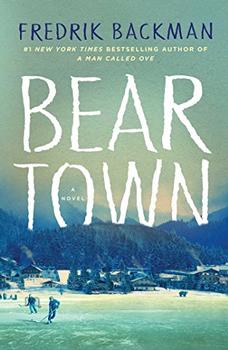Summary | Excerpt | Reading Guide | Reviews | Beyond the book | Read-Alikes | Genres & Themes | Author Bio

This gripping and daring new novel sensitively explores the sacred nature of sex and love and invites us to confront our own prejudices and demons and embrace our own "inner light."
A new, international bestseller by the author of The Alchemist tells the story of Maria, a young girl from a Brazilian village, whose first innocent brushes with love leave her heartbroken. At a tender age, she becomes convinced that she will never find true love, instead believing that "Love is a terrible thing that will make you suffer ..." A chance meeting in Rio takes her to Geneva, where she dreams of finding fame and fortune. Instead, she ends up working as a prostitute.
In Geneva, Maria drifts further and further away from love as she develops a fascination with sex. Eventually, Maria's despairing view of love is put to the test when she meets a handsome young painter. In this odyssey of self-discovery, Maria has to choose between pursuing a path of darkness, sexual pleasure for its own sake, or risking everything to find her own "inner light" and the possibility of sacred sex, sex in the context of love.
In this gripping and daring new novel, Paulo Coelho sensitively explores the sacred nature of sex and love and invites us to confront our own prejudices and demons and embrace our own "inner light."
The growth of the main character from innocent village girl to the writer of philosophical journal entries stretches credibility a little too far, and the whole story seems to be too obvious a vehicle for moralizing...continued
Full Review
 (1 words)
(1 words)
(Reviewed by BookBrowse Review Team).
Paulo Coelho was born in Rio de Janeiro,
Brazil, the city where he now lives. In 1970, after deciding that law
school was not for him, he traveled through much of South America, North
Africa, Mexico, and Europe. Returning to Brazil after two years, he
began a successful career as a popular songwriter. In 1974, he was
imprisoned for a short time by the military dictatorship then ruling in
Brazil. In 1980, he experienced one of the defining moments of his life:
he walked the 500-plus mile Road of Santiago de Compostela in
northwestern Spain and achieved a self-awareness and a spiritual awakening
that he later described in The Pilgrimage.
For some more
information about Coelho ...

If you liked Eleven Minutes, try these:

by Fredrik Backman
Published 2018
The #1 New York Times bestselling author of A Man Called Ove returns with a dazzling, profound novel about a small town with a big dream - and the price required to make it come true.

by Kathryn Harrison
Published 2006
Hypnotic, beautifully written, this mesmerizing novel explores the corrosive effect of evil – and how painful psychological truths long buried within a family can corrupt the present and, through courage and understanding, lead to healing and renewal.
Common sense is genius dressed in its working clothes.
Click Here to find out who said this, as well as discovering other famous literary quotes!